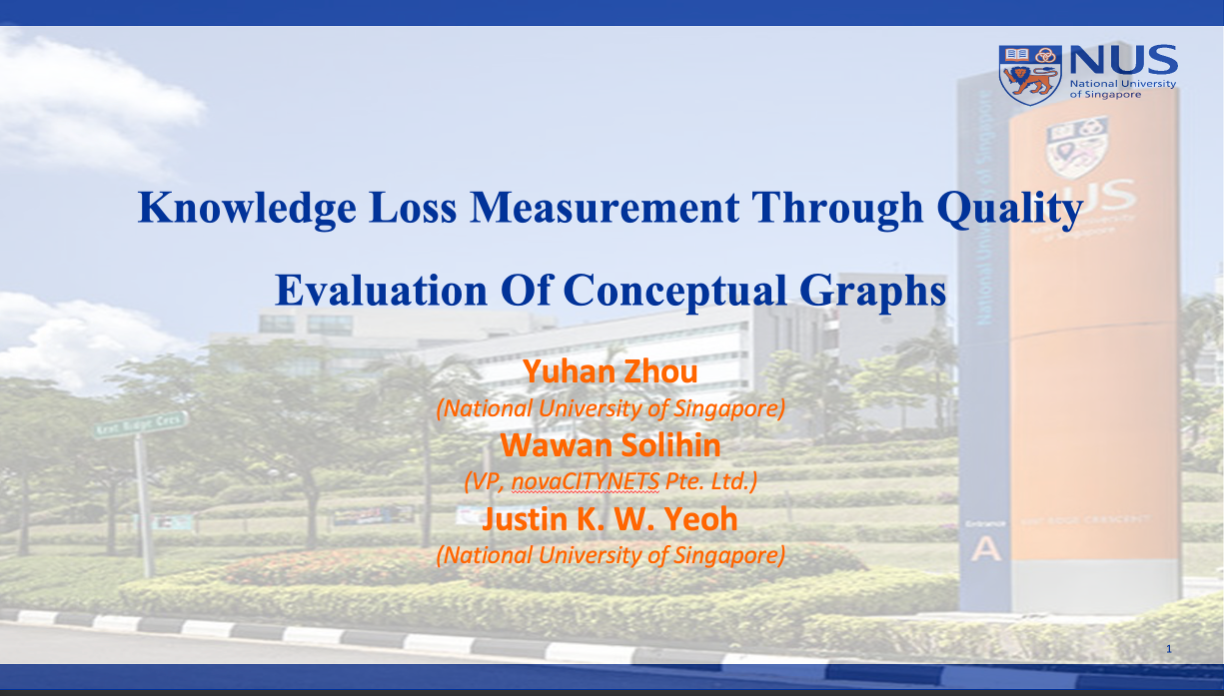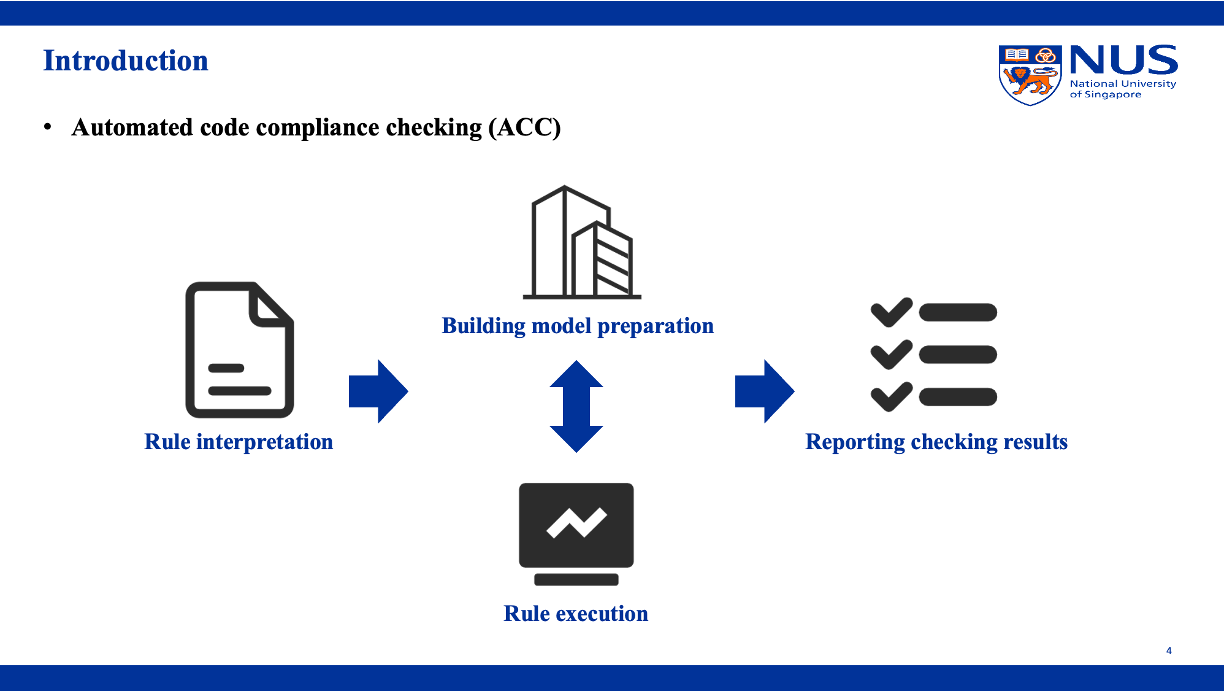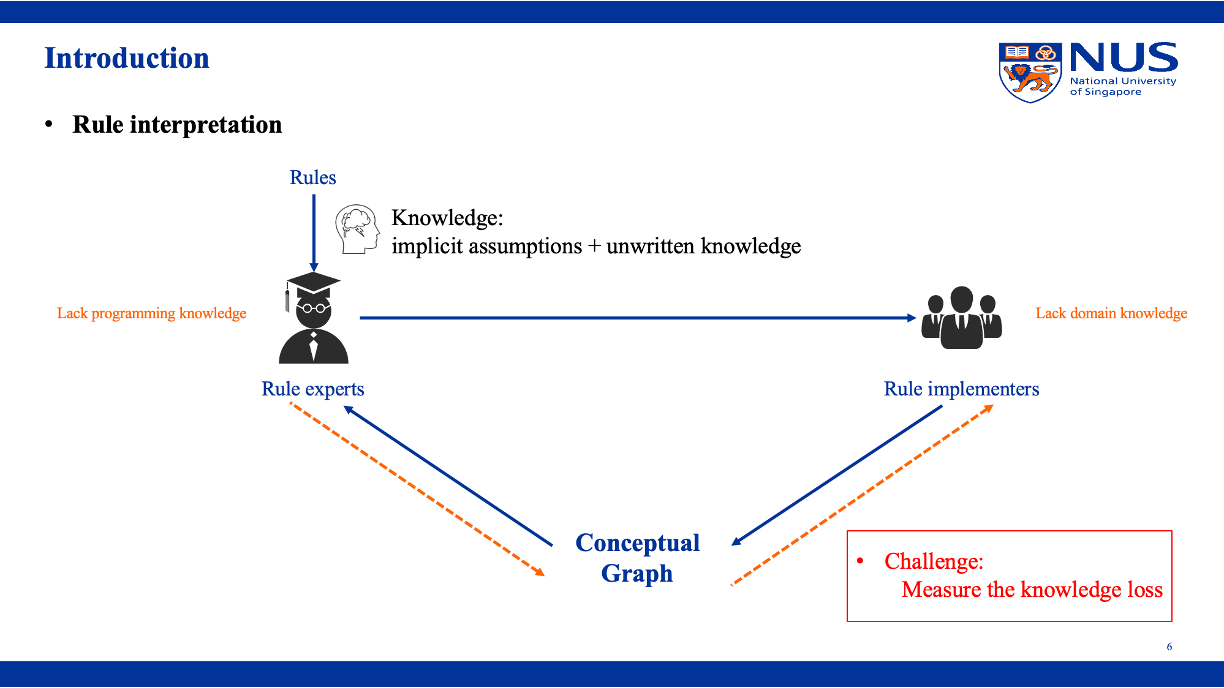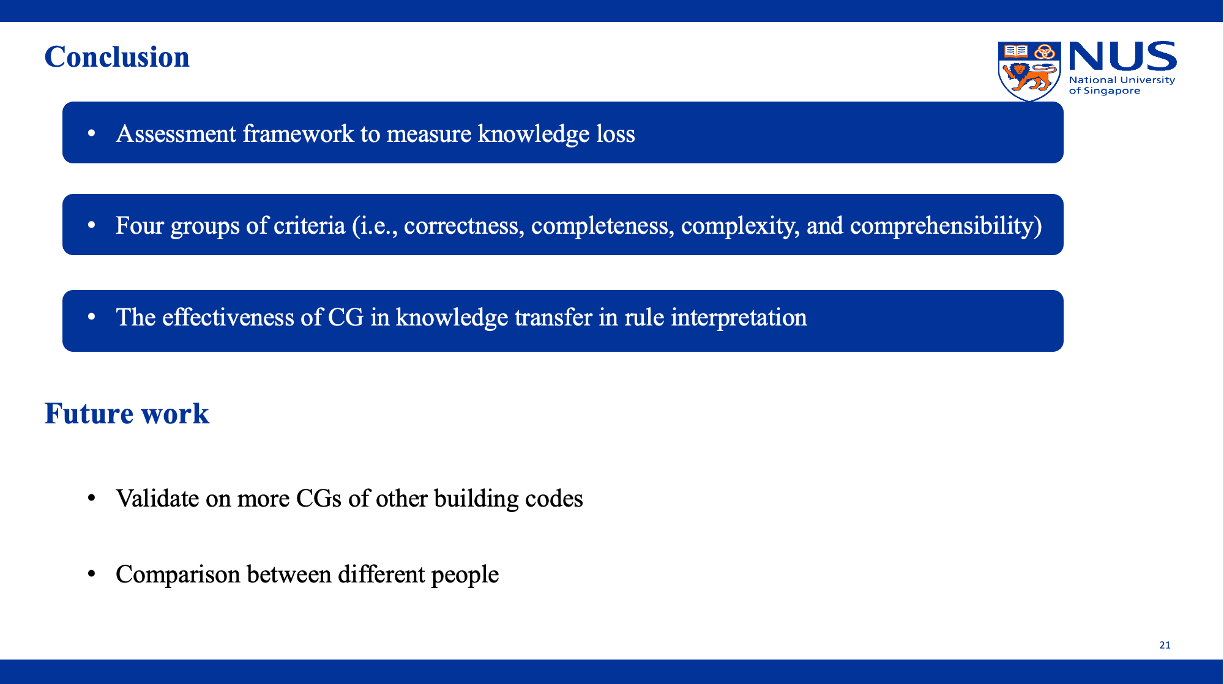2021 - i3CE Conference: Knowledge Loss Measurement through quality evaluation of Conceptual Graph
Date:
Conceptual graph (CG) is a graph representation of logic derived from semantic knowledge. In the rule interpretation process in automated compliance checking (ACC), the quality of knowledge exchange between rule experts and rule implementers is difficult to ensure. CG is an effective communication tool to address this issue. However, quantifying the amount of knowledge transferred through CG is challenging considering the subjectiveness existing in people’s understanding of rules. This paper proposes an assessment framework including both subjective and objective criteria of a CG to measure its quality by comparing the knowledge captured by the CG and the knowledge in the original rules. Four groups of criteria are studied: correctness, completeness, complexity, and comprehensibility. The framework is validated through a case study using a building code related to gross floor area (GFA). The CG generated by the rule implementer is evaluated to test the rule implementer’s knowledge. The evaluation result shows that the rule implementer can capture most of the knowledge in the original building code. The mistakes mostly exist in notations of the CG, which could be due to his/her unfamiliarity with it. Overall, the CG can be easily implemented to represent the building code and check rule implementers’ knowledge. 



